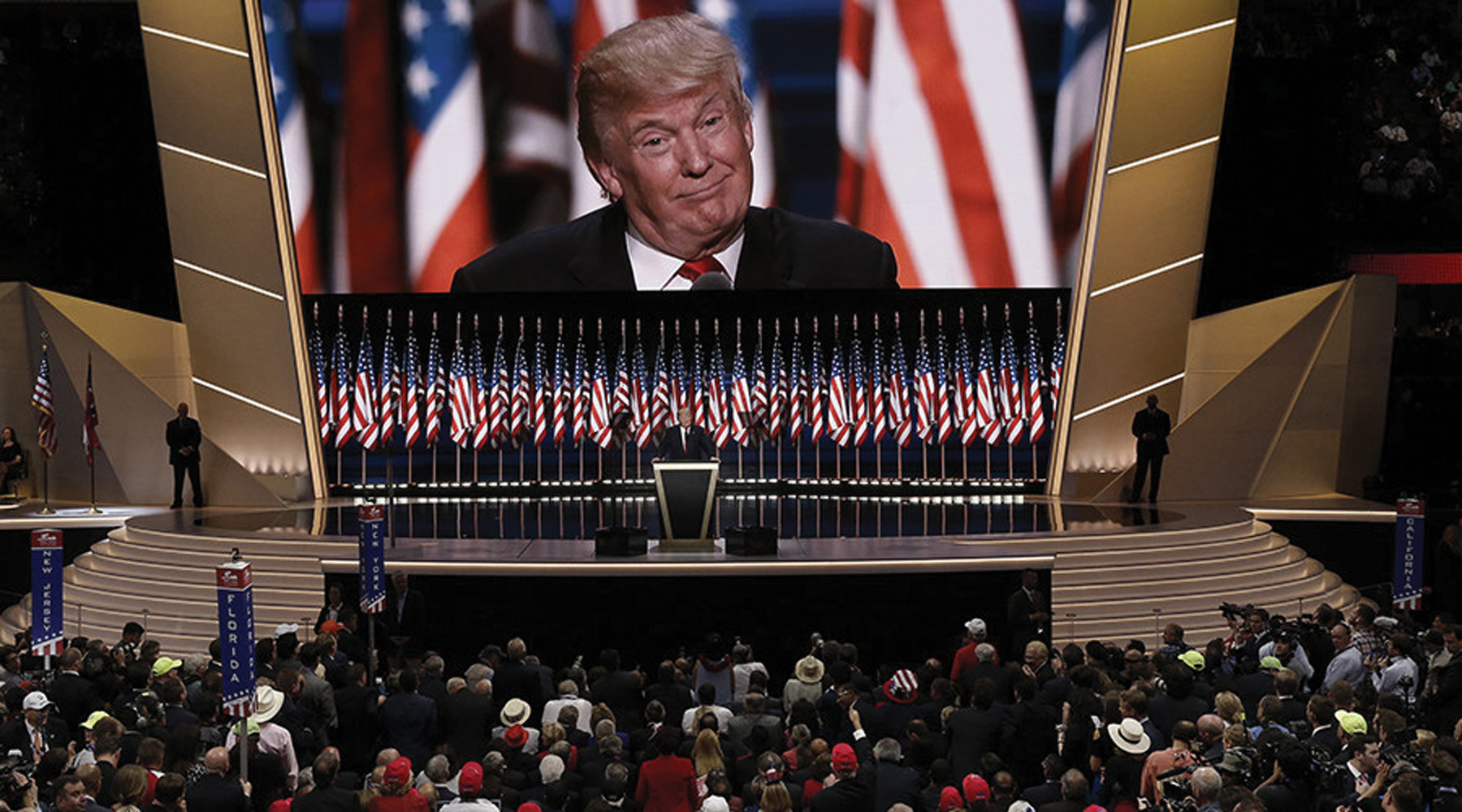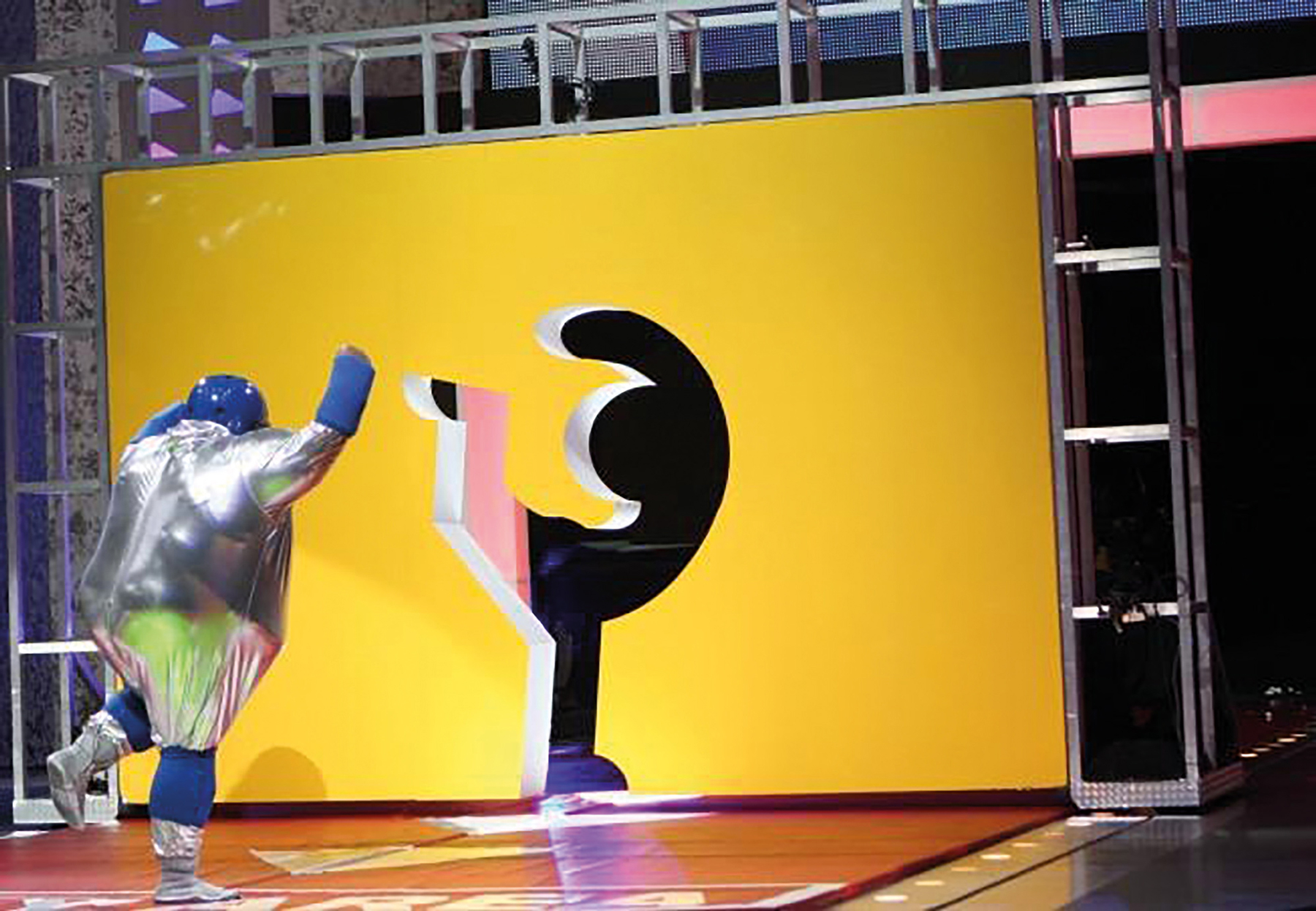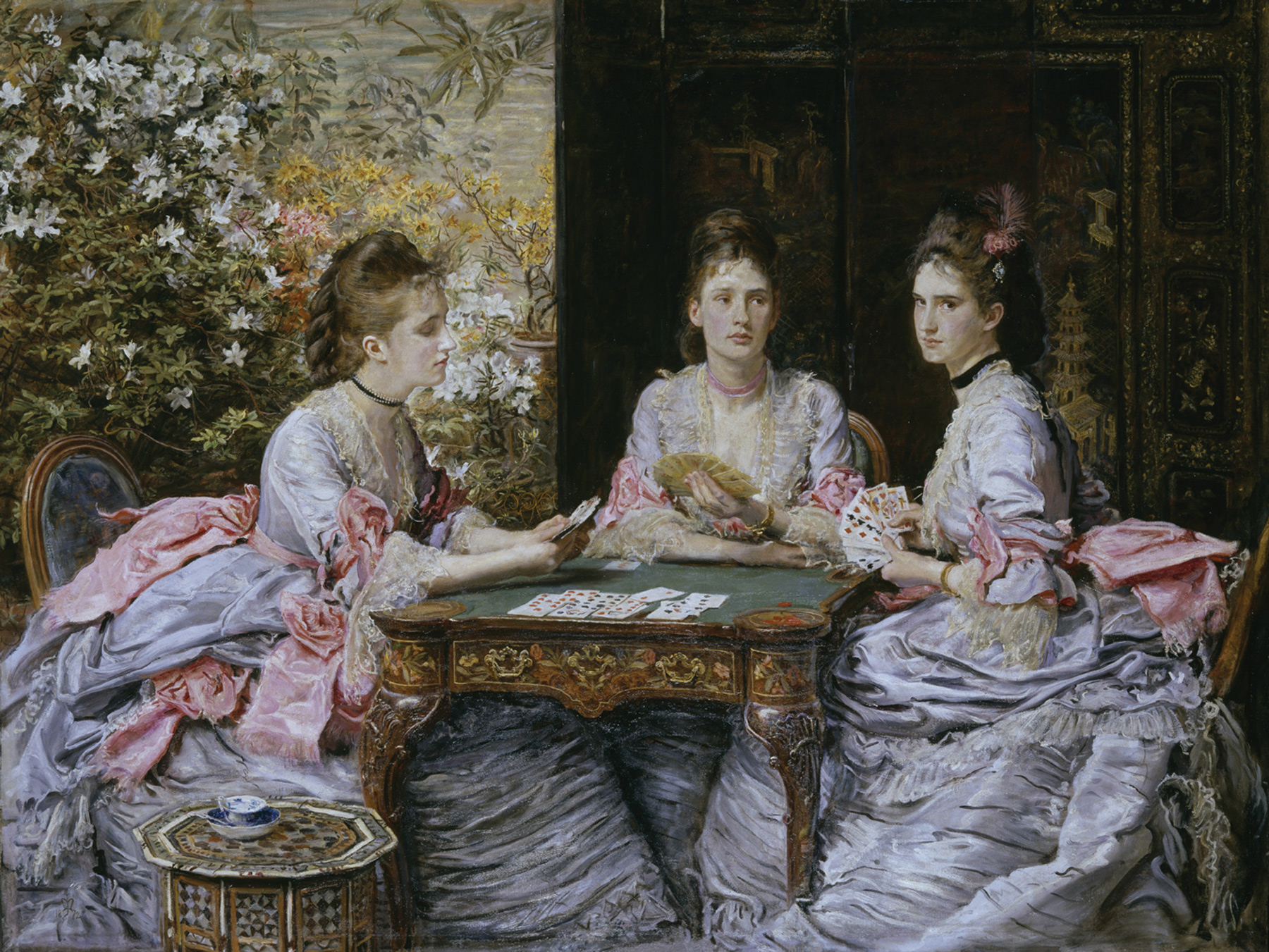Why are Singaporeans forced into a dual consciousness where we are corrected for how we pronounce “basil”, and yet, have to acknowledge gibberish like “chop suey”? We are compelled to speak in a way that is easily digestible to Americans, and we still must understand what they mean with their deep-fried versions of our words. By speaking in the American idiom, I am allowing Western culture to colonise my voice, and I am giving in to the expectation that immigrants of colour are wholly responsible for changing the way they communicate in order to be understood in the United States of America.
So concluded the proposal-turned-manifesto that I wrote in April this year to provide some context for a performance concept. My assignment had been to devise a performance art piece, develop it over a few weeks, and perform it for the rest of the class. Instantly, I knew which themes I wanted to zero in on. Many issues surrounding race, migration and colonialism had been on my mind during this first year in America as a college student, but one concern was especially unavoidable. It followed me everywhere—into the classroom, the dining hall, the bedroom. It was there, every time I had a conversation; there, every time I raised my hand to speak in class. It was my American accent.
***
Code-switching is a linguistic phenomenon that occurs when a person’s speech shifts, often seamlessly, between different languages. It is common in many cultures and contexts where linguistic diversity is a fact of life. Most, if not all Singaporeans grow up learning how to do this, sliding amphibiously between languages, as well as the various ways of speaking English in Singapore.
The occurrence of code-switching generally relies on factors such as the social context within which a conversation is taking place, as well as its subject matter. In professional, educational and public-speaking contexts, Acrolectal Singaporean English is largely used. It is a sort of post-colonial “high English” that mostly follows British pronunciation and phrasing, but lilts with the distinct music of Singaporean intonations. In casual, everyday interactions, a majority of Singaporeans speak varieties of Colloquial Singaporean English. This is also known as Singlish: a multifarious creole that draws from our four official languages of English, Malay, Mandarin, and Tamil, as well as Chinese dialects like Hokkien, Teochew and Cantonese. As in any other language, there are variations in the way it is spoken across age groups: younger generations incorporate slang terms from the Internet.
Coming from a household where the use of Singlish was strongly discouraged meant that I grew up speaking Acrolectal Singaporean English. Watching hours of Scooby-Doo, Where Are You! as a child and The O.C. as a preteen meant that I picked up and reproduced quasi-American inflections in my own speech patterns, setting me apart from my peers at school in a way that began to embarrass me as I grew older. The bright years of adolescence shone a harsh light on my insecurities, and soon I yearned to sound like the people around me. This was how I learned to code-switch: Acrolectal Singaporean English at home, and Singlish with my friends. It was not difficult. Though Singlish did not pass between my lips until I was around fourteen, I had been surrounded by it from birth, steadily sponging up its unique syntax and lexicon from my grandparents and my classmates; the printing aunties at Coronation Plaza; the uncle at the mama shop where I went to buy rainbow Paddle Pops after Chinese tuition. Singlish felt instantly familiar to me, melting in my mouth like those Paddle Pops of my childhood, colours swirling and merging and leaving vivid stains on my tongue. I could show a dismal Maths paper to a classmate with a sigh and an “aiya, liddat lor”. I mastered the unholy trifecta of Hokkien swear words, which will be printed here only as KNN, CCB and NB. And I will send this essay to my friends with the subject title: “eh, can help me to proofread anot?”
***
I am aware that my English-oriented upbringing and education somewhat dictated that my Singlish-speaking abilities should centre around English. Other people speak vastly different kinds of Singlish that are situated around the languages which they are most comfortable speaking: Malay, Tamil, Mandarin, Hokkien, and sometimes, Singlish itself. If that sounds confusing, well, it can be. Singlish’s plurality is perhaps the source of the average Singaporean’s mercurial ability to slip into, out of, and between languages and registers. The code-switching that defines a Singaporean’s communicative life is usually not thought of as a conscious undertaking, and this certainly held true for myself: upon realising that I could speak Singlish, I began to use it frequently and naturally in the casual situations that made up everyday life, instinctively deploying Acrolectal Singaporean English only in more formal circumstances. Another two years in National Service further improved my grasp of Singlish and, therefore, my ability to code-switch effectively in Singapore—a crucial element that solidified my identity as a Singaporean. I felt as if I was in on the secret.
And in America? Upon touchdown at John F. Kennedy International Airport, I hit the ground running my mouth off in an American accent, one even more fully-formed than the one from my preteen days, polished and honed with additional years of American travel, movies, and songs repeating on the radio. Was this code-switching as well? I spoke in an American accent only to non-Singaporeans, and upon contact with a Singaporean, retreated back into the deliciously brusque intimacies of Singlish. It required no effort; in fact, to switch to Singlish or even Acrolectal Singaporean English in the presence of an American felt awkward, false and performative. I liked to think that I was just good at picking up accents.
Despite “passing” most of the time by speaking an English that sounded normal to American ears, I still mispronounced the occasional word, which would elicit looks of confusion. Sometimes, I would quickly correct myself, disconcerted that I had let the foreigner in me stumble out over my tongue and teeth. Even a small discrepancy in pronunciation seemed to confuse Americans, and this was troubling—as were the incidents related to me by Singaporean friends who did not switch to an American accent. They had been told, when speaking in perfectly grammatical English, “I don’t understand you sometimes”; “sorry, could you speak proper English?”; “is that... Chinese...?”. My sister—one of the most articulate people I know—was told by a visiting professor during her undergraduate education in Chicago that she needed to work on her diction. I began to wonder if my speaking in an American accent was something quite different from an innocuous “code-switch”.
***
The performance is titled Jiak Kentang. Literally “eat potato” in Singlish (it derives from a combination of Hokkien and Malay), the phrase is what we call Singaporeans who are Westernised.
There are two chairs in front of the audience. I sit in one hair, holding a bell. I inform the audience that I want to have a conversation with each of them, one at a time, sitting in the other chair. I ring the bell when a conversation is over, and the next person takes a seat.
I begin each conversation in American English. Once I deem that the conversation has established a rhythm, I switch to speaking in Acrolectal Singaporean English. Whether or not the person falters, I continue the conversation without pause, and they will likely adjust and play along.
When I feel that they have gotten accustomed to my speech, I switch once again to Colloquial Singaporean English, and continue the conversation without missing a beat. I continue in this pattern, speaking more and more Singlish each time. If and when the person opposite me fails to understand me, I repeat myself slowly, in the exact same intonation as before. If they understand, we may resume the conversation. If they do not, I wordlessly ring the bell, and the next person has to come up. We repeat the process.
I conceptualised the performance after studying Adrian Piper’s work on racial passing and Carmelita Tropicana’s use of multilingualism and code-switching to discuss problems of identity. It struck me later that I was also heavily inspired by Ruby Pan’s virtuosic 2006 monologue at Talk- ingCock in Parliament, where she spoke about the myth of the “native” English speaker, her voice flowing all the while between multiple accents and manners of speech. My performance was an attempt to fuse the various approaches taken by these artists and performers, and to confront my mostly American, mostly white classmates about their expectations.
***
What defines effective communication? In school, when we are first encouraged to speak publicly, we are taught that a good communicator makes sure that he is perfectly understood. But at what cost? With Singapore’s focus on global competitiveness constantly looming over the heads of local educators, the implication is that, when speaking English, Singaporeans must be intelligible to a white audience. Singlish remains largely verboten in cross-cultural interactions where Singaporeans interact with Americans, Australians, Britons and Europeans. To speak English and be perfectly understood by white people is lauded; to fail to do so is almost shameful. Singaporeans are expected to be as accommodating and adaptable as our iconic Singapore Girl, and to reach across the entire cultural divide to meet a Eurocentric standard of English. We are not met in the middle. White people—even those in our country—rarely make an effort to speak or understand Singlish in a manner comparable to the proficiency with which Singaporeans speak and understand English. When a white person does learn to speak a modicum of Singlish, it is amazing—wah! dis angmoh damn zai!—because he has gone out of his way. “You shouldn’t have!”, we say, almost embarrassed. “Just sit back, make yourself comfortable, and let us speak English to you.”
I began to suspect that speaking in an American accent was caused by something more sinister than “growing up watching American TV”—the reason that I used to justify my angmoh accent to Americans and non-Americans alike. I thought about how class lines in this imperialist world are often drawn by how closely a person is able to approximate whiteness. Was I surrendering to the White Man by speak- ing his English? Was I embarrassed to be a Singaporean? I remembered my disdain for Singaporean peers who studied in the U.K., only to come back with strong U.S. accents. Walau, wrong ‘U’ la, I would think to myself, deriding their attempts to assimilate into Western culture. Now, I understood that I was doing the same. Chips, fries, whatever—we were all trying to speak the language of fried potatoes. I could no longer deny my complicity in the whitewashing of my own voice.
***
I look forward to seeing the reactions that the performance will garner—whether people will completely fail to understand me once I speak a kind of English that they are not used to, and whether this places the responsibility for the communication breakdown squarely on their lack of understanding. After all, I will be speaking English the entire time—different forms of English, but English nonetheless.
At which points will I have to terminate the various conversations? Will people be able to adapt over the course of the conversations, and meet me in the middle? If so, will my own assumptions in adopting an American accent be proven wrong? And will I stop having to jiak kentang?
***
23 April. The date of my performance rolled around. I did not feel ready, nor did I have time to settle my nerves beforehand, because I had been busy stringing black twine in dips and swoops across the theatre as part of a larger group piece about communication. (Theatre people, am I right?) But a minute before I went on, I decided to change how I would conduct the piece. And then I began, the nickel-plated desk bell clinking slightly in my trembling hand.
“Could I get the house lights, please?”
The overhead lights illuminated the theatre, and I stepped into the audience, taking the first empty seat that I could find. I started a conversation with a classmate.
“I’m curious, what languages do you speak?”
“French and German.”
“And which is your favourite language to speak?”
“Oh, that would be English. That’s what I’m most fluent in.”
“Me too! But not this kind of English. You see, in Singapore, we speak Acrolectal Singaporean English in formal situations, which has slightly British inflections as holdovers from our colonial past. And den if I’m talking to friends, I maybe will speak more liddis, which is a bit closer to the Singlish accent. Budden hor, if I at de hawker centre tokking to de mee pok auntie, den bo pian right, I tok liddis lor.”
A gentle but perplexed stare. Ding! Laughter and applause from the audience. I moved to another seat. Another classmate
“So... do you think my English is good?”
“Yeah!”
“What about now?”
“Yes.”
“Den now? How?”
“Yes...”
“Now can? My Engrish powderful anot?”
“Uh...”
Ding! I continued this pattern, but began the next conversations entirely in Singlish, feeling, somehow, that the room was becoming accustomed to it. I knew the performance had to end soon.
“Eh, you wan learn Singlish?”
“Sorry?”
“You wan learn Singlish?”
“Oh, sure!”
“Ok. If got something sibei pretty right, den you can say is chio.”
“Is chio.”
“No la, chio only.”
“Chio.”
“So today our professor wear de jacket is veh...?”
“Chio!”
"Eh, steady! And if you think that something is really delicious, you would say that it’s shiok. So there were chicken tenders in the dining hall today—”
“Shiok!”
“Perfect. Thank you for communicating!”
Ding!
***
That performance, in the end, functioned mostly as a useful experiment for myself. I discovered that my classmates, at least in a setting as focused as a performance art piece, could follow Singaporean English pretty far into a relatively strong accent. I noticed that changing my syntax and introducing unfamiliar words might throw Americans off, but I also found that with exposure, they could tune fairly quickly into Singlish’s unique melody, with its hooks and refrains. Most interestingly of all, I was aware that throughout most of the conversations, I had blushed furiously, fighting an overwhelming sense of embarrassment.
I was ashamed, you see, to speak Singlish—or even Acrolectal Singaporean English—in front of Americans. It was not because I saw Singlish as a “low” language. This sense of shame, frustration, and resentment, which reddened my cheeks and my ears like chilli heat, arose because speaking Singlish to an American was so different from what I had gotten used to doing. Speaking American English in America had been my way of avoiding detection as a foreigner, an impostor, a fresh-off-the-boat immigrant who still pronounced certain things strangely. I thought that a Singaporean accent would invite people here to make assumptions about me, and that an American accent would help me skirt around that. But as a person of colour in America, assumptions would always be made about me, no matter how I spoke. Denying myself the pleasure of speaking Singlish meant denying my identity as a Singaporean to my American friends and peers. I could no longer allow that.
Four days after the performance, I attended a screening of Tan Pin Pin’s affecting and necessary documentary, To Singapore, With Love, at New York University. I admired the film for many reasons, not least because of the way it documents of the natural, distinct way in which Singaporeans speak. I enjoyed watching Ang Swee Chai handily code-switch between flawless English and offhand Singlish, with spontaneous bursts of Chinese dialect. In the movies that we flock to, English is usually spoken the way white people speak it. Young Singaporeans grow up watching Western media where the world is only ever saved in an American or British accent. Though perhaps it was not Tan’s primary intention, it was incredibly moving to watch a film where brave women and men made huge sacrifices while speaking the way I speak. This was a film that I knew had been screened all around the world, from Berlin to Dubai. The wit and humanity of Singlish may have been lost on those audiences, but as a Singaporean, I experienced a significant gain. Right then, Singlish felt legitimate.
***
I have made a promise to myself; one that is vital to keep. I will bring the spirit of my performance into my daily life in America, extending a genial hand across the cultural divide. I expect to be met halfway. I will challenge my friends and peers here, and teach them to understand me when I speak Singlish. I will push for Singlish to be recognised, like English, as a valid way of communicating across cultures.
Singlish is valid because we speak it, us Singaporeans, as a real language. You can save the world in Singlish. You can fall in love in Singlish, have sex in Singlish, break hearts in Singlish. We cannot let the lack of mainstream representation tell us otherwise. Singlish can express concepts, ideas and feelings that English cannot. Some things are not pretty; they can only be chio. Some things are not delicious—they are just shiok. There are so many things that mean so much more in Singlish: they become richer, more complex, and closer to the truth. My voice is one of those things. I do not have my mother’s Cantonese nor my father’s Hokkien, but my first language is, and always will be, Singlish. I am sure of that now. I can speak for myself.




